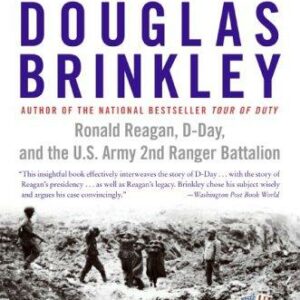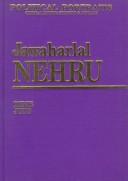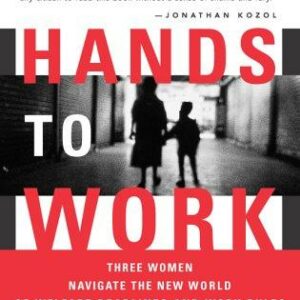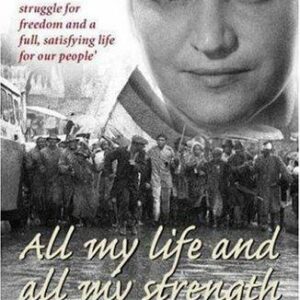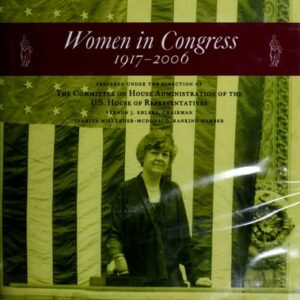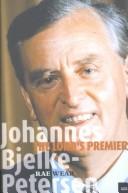Secrets
$22.00
| Title | Range | Discount |
|---|---|---|
| Trade Discount | 5 + | 25% |
- Description
- Additional information
Description
The true story of the leaking of the Pentagon Papers, the event which inspired Steven Spielberg’s feature film The Post
In 1971 former Cold War hard-liner Daniel Ellsberg made history by releasing the Pentagon Papers – a 7,000-page top-secret study of U.S. decision-making in Vietnam – to the New York Times and Washington Post. The document set in motion a chain of events that ended not only the Nixon presidency but the Vietnam War. In this remarkable memoir, Ellsberg describes in dramatic detail the two years he spent in Vietnam as a U.S. State Department observer, and how he came to risk his career and freedom to expose the deceptions and delusions that shaped three decades of American foreign policy. The story of one man’s exploration of conscience, Secrets is also a portrait of America at a perilous crossroad.
“[Ellsberg’s] well-told memoir sticks in the mind and will be a powerful testament for future students of a war that the United States should never have fought.” –The Washington Post
“Ellsberg’s deft critique of secrecy in government is an invaluable contribution to understanding one of our nation’s darkest hours.” -Theodore Roszak, San Francisco ChroniclePreface
Part I
Prologue: Vietnam 1961
1. The Tonkin Gulf: August 1961
2. Cold Warrior, Secret Keeper
3. The Road to Escalation
4. Planning Provocation
5. ”Off the Diving Board”: July 1965
6. Joining the Foreign Legion
7. Vietnam: The Lansdale Team
8. Travels with Vann
9. Losing Hope
10. Rach Kien
11. Leaving Vietnam
Part II
12. Jaundice
13. The Power of Truth
14. Campaign ’68
15. To the Hotel Pierre
16. The Morality of Continuing the War
17. War Resisters
18. Extrication
19. Murder and the Lying Machine
Part III
20. Copying the Papers
21. The Rand Letter
22. Capitol Hill
23. Leaving Rand
24. Kissinger
25. Congress
26. To the New York Times
27. May Day 1971
28. Approaching June 13
29. Going Underground
Part IV
30. The War Goes On
31. The Road to Watergate
32. End of a Trial
Acknowledgements
Notes
Works Cited
Index
“[Ellsberg’s] well-told memoir sticks in the mind and will be a powerful testament for future students of a war that the United States should never have fought.” (The Washington Post)
“Ellsberg’s deft critique of secrecy in government is an invaluable contribution to understanding one of our nation’s darkest hours.” (Theodore Roszak, San Francisco Chronicle)Daniel Ellsberg, a Harvard graduate, ex-Marine, and Rand Corporation analyst, was one of the “whiz kids” recruited to serve in the Pentagon during the Johnson administration. In 1971, Ellsberg made headlines around the world when he released the Pentagon Papers. He is now a prominent speaker, writer, and activist.On the evening of October 1, 1969, I walked out past the guards’ desk at the Rand Corporation in Santa Monica, carrying a briefcase filled with top secret documents, which I planned to photocopy that night. The documents were part of a 7,000-page top secret study of U.S. decision making in Vietnam, later known as the Pentagon Papers. The rest of the study was in a safe in my office. I had decided to copy it all and make it public, perhaps through Senate hearings or the press, if necessary. I believed this course, especially the latter possibility, would probably put me in prison for the rest of my life. How I came to do this is the focus of this memoir.
For eleven years, from mid-1964 to the end of the war in May 1975, I was, like a great many other Americans, preoccupied with our involvement in Vietnam. In the course of that time I saw it first as a problem, next as a stalemate, then as a moral and political disaster, a crime. The first three parts of this book correspond roughly to these emerging perceptions. My own personal commitment and subsequent actions evolved along with these changing perspectives. When I saw the conflict as a problem, I tried to help solve it; when I saw it as a stalemate, to help us extricate ourselves, without harm to other national interests; when I saw it as a crime, to expose and resist it, and to try to end it immediately. Throughout all these phases, even the first, I sought in various ways to avoid further escalation of the conflict. But as late as early 1973, as I entered a federal criminal trial for my actions starting in late 1969, I would have said that none of these aims or efforts—neither my own nor anyone else’s—had met with any success. Efforts to end the conflict—whether it was seen as a failed test, a quagmire, or a moral misadventure—seemed no more to have been rewarded than efforts to win it. Why?
As I saw it then, the war not only needed to be resisted but remained to be understood. Thirty years later I still believe that to be true. This book represents my continuing effort—far from complete—to understand my country’s war on Vietnam, and my own part in it, and why it took so long to end both of those.
For three years starting in mid-1964, with the highest civil service grade, I had helped prosecute a war I believed at the outset to be doomed. Working in Washington under top decision makers in 1964‒65, I watched them secretly maneuver the country into a full-scale war with no real promise of success. My pessimism during those years was not unbroken, and for about a year—from the spring of 1965 to the spring of 1966—I hoped for and worked toward some sort of success. That was after the president, despite many misgivings, including his own, had committed us to war. Once we were fully committed, I volunteered in mid-1965 to serve in Vietnam as a State Department civilian. My job came to be evaluating “pacification” in the countryside. In this I drew on my earlier training as a marine infantry commander to observe the war up close. Whether we had a right—any more than the French before us—to pursue by fire and steel in Indochina the objectives our leaders had chosen was a question that never occurred to me. But during two years in Vietnam, its people and plight became real to me, as real as the U.S. troops I walked with, as real as my own hands, in a way that made continuing the hopeless war intolerable.
Knocked out of the field with hepatitis and back in the United States in mid-1967, I began to do everything I could imagine to help free our country from the war. For two years I did this as an insider, briefing high officials, advising presidential candidates, and eventually, in early 1969, helping the president’s national security adviser, Henry Kissinger, discover uncertainties and alternatives. But later that same year I felt called on to go beyond this approach and so to end my career as a government insider.
One of these actions risked my own freedom. In 1969 and 1970, with the help of my friend Anthony Russo, a former Rand associate, I secretly photocopied the entire forty-seven-volume Pentagon Papers, a top secret study of U.S. decision making in Vietnam from 1945 to 1968, which were then in my authorized possession, and gave them to Senator William Fulbright, chairman of the Senate Foreign Relations Committee. In 1971 I also gave copies to the New York Times, to the Washington Post, and ultimately, in the face of four unprecedented federal injunctions, to some seventeen other newspapers, all of which defied the government in printing them for the public to read.
I wasn’t wrong about the personal risks. Shortly thereafter I was indicted in a federal court, with Russo later joining me in a second, superseding indictment. Eventually I faced twelve federal felony charges totaling a possible 115 years in prison, with the prospect of several further trials for me beyond that first one. But I was not wrong, either, to hope that exposing secrets five presidents had withheld and the lies they told might have benefits for our democracy that were worthy of the risks. This truth telling set in motion a train of events, including criminal White House efforts to silence or incapacitate me, that led to dismissal of the charges against me and my codefendant. Much more important, these particular Oval Office crimes helped topple the president, an act that was crucial to ending the war.
This is the story of the greatest change in my life, which began well after my return from Vietnam. The disillusionment of the brief hopes that I experienced in Vietnam and the skepticism toward the war that I brought back in mid-1967 were not really new for me. On the contrary, they were a return to the pessimism that I had acquired on a first trip to Vietnam in 1961 and that had been reinforced in my first year in the Pentagon from mid-1964. By 1968 this skeptical mood was widely shared inside the government, perhaps even more than in the public. This was a time when my general desire to see the war ended did not distinguish me from almost any of my colleagues in the government or government-sponsored research, whether or not they had served in Vietnam. An entire generation of Vietnam-era insiders had become just as disillusioned as I with a war they saw as hopeless and interminable. I was like them in most respects, no different in character or values, no less committed to the cold war, to anticommunism, to secrecy, and to the presidency. By 1968, if not earlier, they all wanted, as I did, to see us out of this war. Indeed this poses a question that I have worked at understanding ever since: How could it be, under these circumstances, that after the massive disillusionment of the Tet offensive in early 1968 the war still had seven years to go?US
Additional information
| Dimensions | 1.0900 × 5.4500 × 8.4400 in |
|---|---|
| Imprint | |
| ISBN-13 | |
| ISBN-10 | |
| Author | |
| Audience | |
| BISAC | |
| Subjects | historical books, us history, political books, American history books, military history, dad gifts, history gifts, military history books, world politics, gifts for history buffs, autobiographies, vietnam war books, stalingrad, best history books of all time, the vietnam war, Pentagon Papers, pentagon paper, the pentagon papers, daniel ellsberg, Vietnam, gifts for dad, war, american history, biography, political, military, American, Secrets, justice, history, Vietnam War, battles, BIO010000, history books, world history, army, biographies, HIS032000 |


